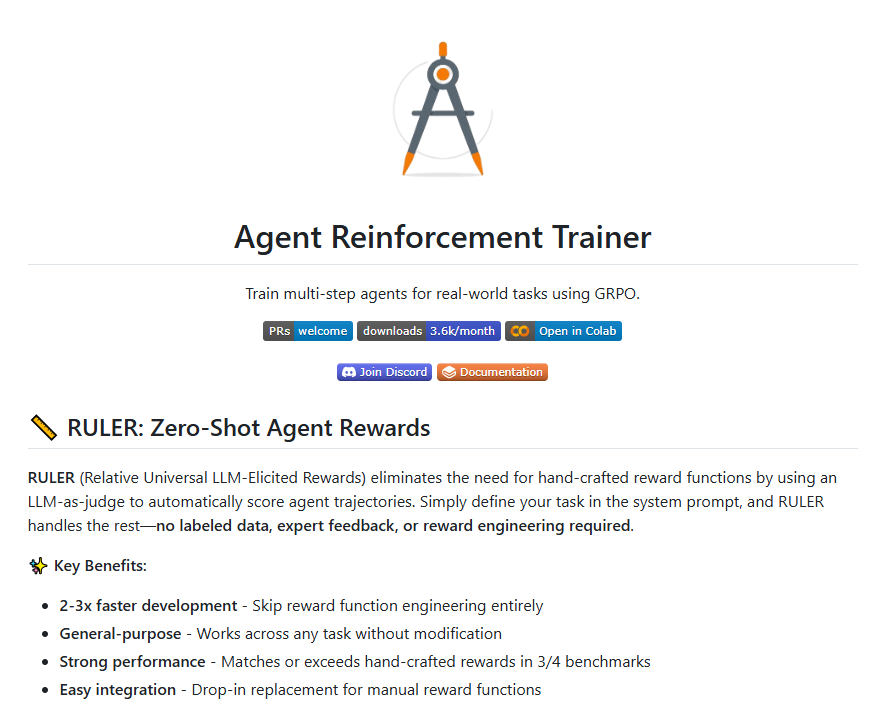ART Framework Launches: Simplify AI Agent Training with Python
ART Framework Revolutionizes AI Agent Training
The rapid advancement of artificial intelligence has ushered in a new era for intelligent agent development. The recently released ART (Agent Reinforcement Trainer) framework is making waves in the developer community as an open-source reinforcement learning solution. This innovative tool empowers Python developers to create AI agents capable of handling complex, multi-step tasks with remarkable ease.
A Leap Forward in Reinforcement Learning
At its core, ART leverages GRPO technology to enhance AI agent performance through reinforcement learning (RL). This approach allows agents to learn from experience and continuously optimize their task execution. The framework's design philosophy emphasizes simplicity and modularity, making it accessible to developers across skill levels.

What sets ART apart is its versatile model support. The framework works seamlessly with various language models including Qwen2.5, Qwen3, Llama, and Kimi. Developers particularly benefit from using smaller models like Qwen2.5-7B, which offer an optimal balance of efficiency and flexibility for most applications.
Streamlined Development Process
The ART framework adopts a client-server architecture that dramatically reduces setup complexity. Developers can integrate reinforcement learning capabilities into existing projects with just a few Python commands. Installation requires nothing more than:
pip install art
The server component handles the heavy lifting of training and inference processes, supporting both local GPU environments and cloud-based solutions. This architecture frees developers from managing low-level infrastructure while providing robust performance.
ART also features extensive platform compatibility, integrating smoothly with:
- W&B for experiment tracking
- Langfuse for analytics
- OpenPipe for pipeline management
These integrations provide comprehensive observability tools that help developers monitor and refine their agent training processes.
Diverse Application Scenarios
The ART framework demonstrates impressive versatility across multiple domains:
Email Automation & Search
Trained agents can efficiently execute multi-step email retrieval operations, significantly boosting productivity by automating repetitive communication tasks.
Game Development & AI
Developers can create sophisticated game AIs that learn and adapt within complex environments, from classic Atari games to custom scenarios requiring advanced decision-making.
Multi-Agent Systems
The framework's support for recursive sub-agent calls and multi-turn interactions makes it ideal for building collaborative multi-agent solutions.
The underlying GRPO algorithm ensures stable performance by executing parallel rollouts and iterative training using the latest model checkpoints.
Future Roadmap & Community Engagement
The ART development team has ambitious plans to expand the framework's capabilities:
- Support for multimodal data processing
- Enhanced long-context reasoning abilities
- Customizable training parameters and inference configurations
The project actively encourages community contributions through its GitHub repository at https://github.com/openpipe/art. This open-source approach fosters innovation while lowering barriers to entry for individual developers and small teams alike.
Key Points:
- One-click installation via pip simplifies setup process
- Small model optimization ensures efficient performance
- Multi-platform integration provides robust monitoring tools
- Versatile applications span from email automation to game AI
- Open-source model encourages community development